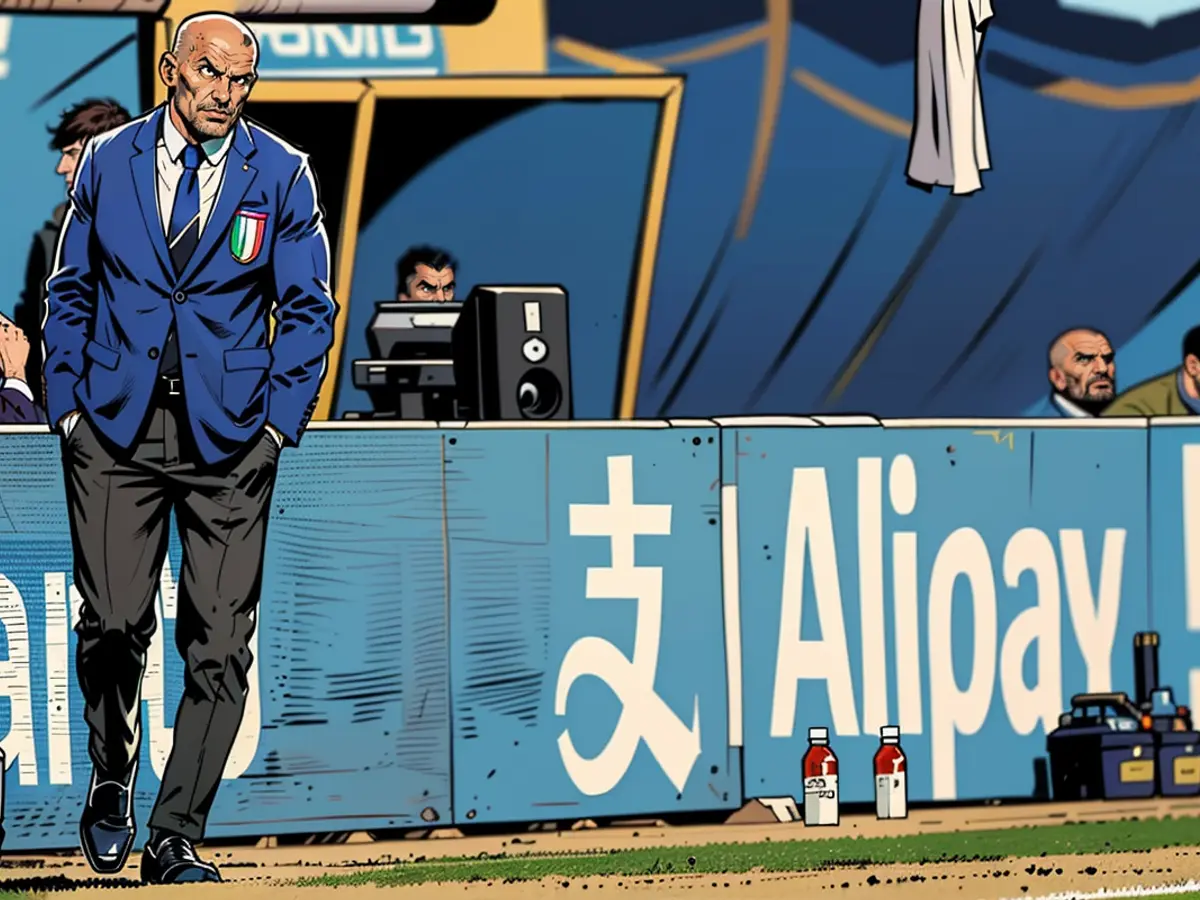What does Alipay expect from its massive EM advertising?
On bands, fan miles, or in TV spots, soccer fans have been frequently spotting the Alipay+ logo during EURO football matches. What's behind it and which target group the Chinese payment service provider aims to reach, explains Europe CEO Pietro Candela.
Mr. Candela, you are the Europe CEO of Alipay+, the Chinese payment service provider that is currently heavily advertising during the EURO football championship. What attracts your company to the EURO?
Pietro Candela: We are in a very important phase. We decided in 2014 to expand our network globally to serve Chinese travelers. Europe, as a popular travel destination, plays a significant role in this. Now we are broadening our business model to other Asian e-wallets ...
... digital wallets that are also known in Europe as Paypal or Android Pay ...
Yes, and we want to draw the attention of global travelers and European merchants to their benefits. That's why we are sponsoring the EURO - it's the largest stage in Europe with a universal language, football.
Why Europe? Why not the USA, where the economy is much stronger?
We see long-term significant growth potential for Europe in terms of digital payments. Europeans are simply not as far along in this regard. This is also due to the fact that Europe is linguistically and culturally very fragmented. But I believe we will see a shift, from a centralized economy to a decentralized network economy. This means more local cooperations alongside global champions. Europe plays a major role in this, as we have been living the necessary interest alignment for a long time.
Back to the EURO: Many fans are currently seeing your logo on bands, fan miles, or in TV spots - but they don't know anything about your brand. So: What do you actually do?
While we are already extremely popular in Asia, we can better promote our brand in Europe. Basically, it's about two levels: The Ant Group and Ant International address Asian consumers who like to shop at European retailers. However, during the EURO, German and Austrian banks are also working with us. We offer a QR code payment solution, and many merchants and consumers want to try it out. Alipay+, based in Singapore, is essentially the interface or technology behind this. A unified platform that allows us to connect users and merchants globally with local financial institutions. For example, we target merchants who have Asian tourists as customers and want to offer them a payment platform that also includes marketing content and services. Our goal is for tourists to be able to pay anywhere in the world with Alipay+ and gain access to marketing actions and privileges offered by brands and merchants.
And what does your competition, such as Visa, Mastercard & Co., do worse? I can almost pay anywhere in the world with them as well.
Our competitor is cash. Every provider of digital technologies or services is a like-minded individual, capable of making travelers' lives easier. In Asia, QR payment was decisive for financial inclusion and cashless economy. In Europe, it's different. Almost every European has a bank account, almost every merchant has a digital payment terminal with NFC technology. When a European shops in Europe, that's not our focus. Yet, there are numerous opportunities for us in trade that go beyond simple transactions. Here, QR codes and apps can play a role and present use cases. Consumers are satisfied with current payment systems but can still enjoy a more comprehensive shopping experience - before, during, and after their journey, through their financial apps.
Interview with Pietro Candela by Jannik Tillar
The interview first appeared on Capital.de
Pietro Candela: Besides advertising during the EURO, we are also sponsoring it as it's the largest stage in Europe with a universal language, football. This allows us to draw the attention of global travelers and European merchants to the benefits of digital wallets like Alipay+.
With a strong focus on Europe, Alipay+ sees significant growth potential in digital payments. While the American economy is strong, Europeans are less advanced in this area, due in part to linguistic and cultural fragmentation. However, with a shift towards a decentralized network economy, Europe plays a major role in this transformation, as it has been living the necessary interest alignment for a long time.








